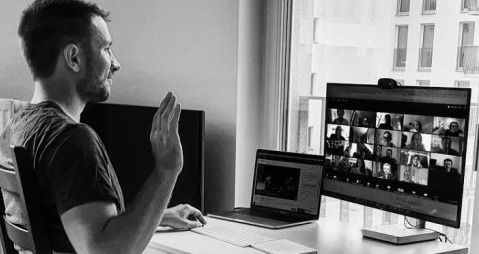#Extract Travel Data from Ctrip
Explore tagged Tumblr posts
Text
Ctrip.com is a multinational Travel Company in China. Being China's important traveling service provider, Ctrip provides more than 90 million of comprehensive services like flight ticketing, hotel reservations, registered members, package tours, corporate travel management, and train ticket, dining reservations, and more. Furthermore, both business travelers and leisure that grip the Ctrip associations like to access travel information as well as special discounts from the favored businesses in China.
0 notes
Text
Scrape Hotel Price Data From Ctrip To Gain Data-Driven Insights
Scrape Hotel Price Data From Ctrip To Gain Data-Driven Insights

Hotel and travel price data scraping has gained significant prominence in recent years due to its pivotal role in the modern travel and hospitality landscape. Several factors contribute to this surge in importance.
Firstly, the rise of online booking platforms and travel aggregator websites has made pricing data easily accessible but highly competitive. Businesses must monitor their competitors' prices to stay competitive and adjust their own in real-time. Hotel price scraping automates this process, ensuring hotels and travel companies remain responsive to market changes.
Secondly, the growing influence of dynamic pricing strategies has led to an increased need for current, accurate data. Dynamic pricing relies on demand, seasonal fluctuations, and local events. Scraping hotel price data allows businesses to fine-tune their pricing strategies to maximize revenue and profitability.
Furthermore, consumers have become more price-conscious, seeking the best deals and value for money. Travelers often compare prices across various platforms, relying on web scraping hotel price data to make well-informed decisions.
Scraping hotel price data equips businesses with the tools they need to remain competitive, adapt to dynamic market conditions, and meet the evolving demands of today's price-conscious travelers.
List of Data Fields

Hotel Name
Location/Address
Room Types
Room Prices
Availability and Booking Status
Amenities and Facilities
Guest Ratings and Reviews
Hotel Description
Check-in and Check-out Times
Photos and Images
Contact Information
Cancellation Policies
Offers and Promotions
Nearby Attractions and Points of Interest
Hotel Star Rating
Room Capacity and Bed Types
About Ctrip

Founded in 1999 and headquartered in Shanghai, China, Ctrip.com International Ltd has emerged as China's premier travel services provider. With over 90 million registered members, Ctrip offers an extensive range of services encompassing flight ticketing, hotel reservations, corporate travel management, package tours, dining reservations, and train tickets. Both leisure and business travelers who are Ctrip members enjoy access to travel information and exclusive discounts from affiliated businesses across China.
Utilizing data from various travel apps, gather a wealth of travel information for diverse applications. Harness this data to develop a travel search engine akin to Ctrip, replete with a vast repository of hotel reviews, travel listings, and reviewer profiles. The extracted data is invaluable for analyzing traveler preferences, behavior, and other insightful patterns, serving as a foundational resource for establishing a successful venture in the travel and tourism industry. iWeb Data Scraping offers top-tier Ctrip Travel Mobile app Scraping through API Services, enabling the extraction of travel data from the Ctrip Travel Mobile app for various applications.
Scrape Ctrip travel data to compile a comprehensive and invaluable resource for analyzing traveler behavior, preferences, and trends, facilitating the development of data-driven strategies and services in the travel and tourism industry.
Role of Scrapers in Collecting Data from Ctrip

Scrapers are pivotal in efficiently collecting data from Ctrip, one of China's leading travel service providers. Ctrip offers a wealth of information, including flight details, hotel reservations, dining options, and travel management services, catering to millions of registered members. Scrapers are essential tools for aggregating this diverse and dynamic data, as they can automate extracting information from Ctrip's websites and mobile apps.
Ctrip scrapers enable the collection of large volumes of data and do so rapidly and accurately. It is essential in the travel industry, where prices, availability, and traveler preferences can change quickly. Scrape hotel price data from Ctrip to help businesses stay updated with the latest information, making informed decisions about pricing, availability, and customer offerings.
Moreover, the collected data is a goldmine of insights. It is helpful for competitive analysis, market research, and understanding traveler behavior and preferences. Businesses can tailor their services, promotions, and strategies to meet the needs of their target audience better, ultimately enhancing customer satisfaction and profitability using hotels & travel price data scraping services.
Ctrip hotel price scraper plays a vital role in efficiently and effectively collecting data from Ctrip, empowering businesses to make data-driven decisions, stay competitive, and offer enhanced travel experiences to their customers in the dynamic and ever-evolving travel industry.
Use Cases of Data Collected from Ctrip Booking Website
Data collected from the Ctrip travel website is a valuable resource with diverse applications. Here are six unique use cases for such data:
Pricing Strategy Optimization: Scrape Ctrip travel data to help analyze historical price data. Develop dynamic pricing strategies based on demand, seasonal fluctuations, and competitor pricing. It ensures competitive rates and maximized revenue.
Customer Personalization: Utilize customer profiles and booking history data to personalize offers, recommendations, and marketing campaigns, enhancing customer loyalty and satisfaction.
Competitive Analysis: Gather data using Ctrip hotel data scraping services on competing hotels, airlines, and travel services to benchmark against your offerings, identifying areas for improvement and differentiation.
Trend Analysis: Analyze user-generated content, such as reviews and ratings, to identify emerging travel trends, popular destinations, and preferred amenities, aiding business planning and marketing efforts.
Operational Efficiency: Data scraping in the travel industry helps track booking patterns and room occupancy rates to optimize staff scheduling, inventory management, and resource allocation for improved operational efficiency.
Market Research: Conduct in-depth market research by analyzing user preferences, travel behavior, and customer reviews to identify gaps in the market and opportunities for new services or product offerings.
Incorporating Ctrip hotel price data collection into your business strategy can lead to informed decision-making, enhanced customer experiences, and a competitive edge in the travel and hospitality industry.
FAQ
What are the advantages of scraping hotel price data from Ctrip over using their official API?
Scraping provides more flexibility in terms of data extraction and may be preferred when the official API lacks specific features or access to certain data.
How can I handle dynamic pricing data when scraping from Ctrip?
Handle the dynamic pricing data by implementing scheduled scrapes or using monitoring tools that trigger scraping when significant changes occur.
Are there any restrictions on using scraped hotel price data from Ctrip for commercial purposes?
Review Ctrip's terms of service to understand any restrictions on using scraped data for commercial purposes or publishing it on your website.
What strategies can I employ to minimize the chances of IP blocking while scraping hotel price data from Ctrip?
Using rotating IP addresses, managing request frequencies, and employing user-agent rotation can help reduce the risk of IP blocking.
How can I extract hotel price data for specific regions or cities when scraping from Ctrip?
Customizing your scraping script to filter results based on location or city can help you extract data for specific regions.
Can you scrape real-time room availability data in addition to hotel prices from Ctrip?
Yes, room availability data can be scraped in real-time, providing you with up-to-the-minute information on room availability.
What precautions should I take to ensure compliance with data privacy regulations when scraping hotel price data from Ctrip?
Scraper users should be cautious about collecting personally identifiable information (PII) and comply with relevant data privacy regulations.
Are there any specific anti-scraping measures on Ctrip's website that I should be aware of while scraping hotel price data?
Ctrip may employ anti-scraping measures such as CAPTCHAs, rate limiting, and JavaScript challenges. It's essential to design your scraping process to handle these challenges.
How can I ensure that my scraping activities are ethical?
Respecting Ctrip's terms of service, using scraping for legitimate purposes, avoiding disruptive scraping practices, and maintaining user privacy is essential for ethical scraping.
Know More: https://www.iwebdatascraping.com/scrape-hotel-price-data-from-ctrip.php
#ScrapeHotelPriceDataFromCtrip#Hotelandtravelpricedatascraping#scrapinghotelpricedata#ScrapeCtriptraveldata#Ctriphotelpricescraper#extracthotelpricedata#hotelpricedataextractor
0 notes
Link

Our Ctrip app scraper makes it possible to scrape data from an unstructured App. Ctrip app scraping services are offered at affordable prices and could be downloaded in a required format like XML, JSON, or excel.
1 note
·
View note
Photo



End of the Office: The Quiet, Grinding Loneliness of Working From Home
Before Covid-19, many of us thought remote working sounded blissful. Now, employees across the world long for chats by the coffee machine and the whirr of printers. The Guardian ��Simon Usborne..
Dahlia Francis is sitting on a small couch at the foot of her bed, in her shared flat, on a housing estate in south London. She wears her new uniform of pyjama bottoms and a Zoom-ready plain T-shirt. Her room used to be a living room. Now the only communal space is the kitchen, where Francis’s three flatmates occupy a small dining table. They, like almost half of Britain’s workforce, are also working from home.
Francis, who is 29, is a credit controller for a charity in central London. She commuted there, by bus and tube, for a little more than a year. There were baking competitions and quizzes and a kitchenette, where gossip and tea flowed freely. Now the kettle is silent and the cubicles are empty. They are likely to remain so for the rest of the year.
For the first few weeks after her office closed in late March, Francis was too busy to consider her new circumstances. Then they hit her – and got her down. Days spent in her bedroom hunched over a laptop, centimetres from where she slept, blurred into endless weeks. She has become lonely.
Francis has worked for a tool hire firm and a betting chain, as well as for charities. The offices she remembers have taken on a different shape in her mind. “I used to think of a desk as like a kind of prison cell, where I was chained for eight hours a day,” she tells me over the phone. “It was always like serving time. But, at this point, my desk would be my saviour.”
Lockdown has not so much redrawn the workplace of millions as it has chewed it up like a broken printer. Working from home, a mode traditionally viewed with suspicion by bosses and with envy by commuting bureausceptics, has become the norm for those whose livings are tied to computer screens.
As weeks become months and offices remain closed, many are predicting their permanent decline. Buildings that for decades have defined urban geography, diurnal rhythms and the meaning of work may never hum in the same way to the sounds of keyboards and fluorescent lighting.
“I’ve spoken to about eight startups that have already got rid of their office,” says Matt Bradburn, the co-founder of London-based People Collective, which advises companies on human resources. “And we’re talking companies of 50 to 100 people.” Elsewhere, firms including Twitter and Facebook have said they will allow employees to work from home for ever.
The potential demise of commutes and the soul-sapping trappings of office life is a cause of celebration for many among the 49% of workers now toiling at home. But for people such as Francis, whose flat is unsuited to work, offices provide space to share ideas, socialise and maintain a work-life divide that has become hopelessly blurred.
According to a survey by the global financial services company Jefferies, 61% of more than 1,500 UK respondents said they would return to work immediately if they could. Facebook says half of its employees will work from home by 2030, but Mark Zuckerberg said only one in five were enthusiastic about doing so. More than half “really want to get back to the office as soon as possible”, he told the Wall Street Journal.
When Bradburn polled his network of more than 5,000 HR bosses, he asked for the biggest reasons their teams had shared for wanting to go back to the office. Seventy per cent cited social and mental health issues, including feelings of loneliness. “I think young people in particular really need that connection,” Bradburn says.
The effects of working from home have been little studied, partly because remote working was pretty rare until this spring. The proportion of the UK workforce who worked “mainly” at home went from 4% to 5% in the UK between 2015 and 2019, according to the Office for National Statistics. Permanent home working was vanishingly rare.
“It’s always been a pretty backwater topic,” says Nick Bloom, a British economics professor at Stanford University in California and an expert in home working. The last time Bloom’s phone rang so much was 2013, he says, when Marissa Mayer, then the chief executive of Yahoo, banned remote working. “Speed and quality are often sacrificed when we work from home,” read a leaked memo to staff.
The assumption has been that remote workers slack without direct supervision. But do they? In 2010, a Chinese travel agency with 16,000 employees came to Bloom in search of evidence. Ctrip, which assumed workers would prefer being at home, was spending big money on offices in Shanghai. It wanted to know what remote work might do for the bottom line. “Their proposition was that they’d save on rent, but lose on productivity,” Bloom says.
Bloom devised a trial – the first of its kind – involving 250 members of a Ctrip call centre. Half of the group were selected at random to work from home for nine months. The other half would continue to work in the office and the productivity of both teams would be measured.
None of Ctrip’s assumptions were right. Productivity in the home group went up by 13%. Without the distractions of the office, agents were making more calls and taking fewer breaks and sick days. “They were truly stunned by the results,” Bloom says of Ctrip. Its executives calculated not only that they could save millions in rent, but also that they could make $2,000 (then about £1,300) more in profit annually per employee.
But the experiment also measured happiness. When Ctrip polled staff, half of the home-based group wanted to go back to the office. “Loneliness was the single biggest reason,” Bloom says. Plus, they were not in lockdown conditions: only people with a spare room took part; none had children at home or flatmates; and they still worked one day a week in the office.
Bloom is now constantly fielding calls from anxious executives. “They have said productivity has been great and they’re thinking of abandoning the office,” he says. “I’m counselling that it’s shortsighted and high-risk.” Bloom had always been supportive of remote working, if not full-time, even after the Ctrip experiment. “Now I feel like I’ve gone from being an evangelist for working from home to an evangelist for the office,” he says.
Erin Mackenzie, 23, knows what it can be like to work remotely full-time without the stresses of lockdown. In the summer of 2019, she got a junior marketing job with an online education company based in the Middle East. Mackenzie, who lives in a small house in a small town 50 miles north of New York City, thought working from home would be great.
After four months of long days alone at the tiny desk in her bedroom, Mackenzie had a panic attack. She had lost weight and become depressed. “At first, I thought it was because the job was demanding, but I realised it was more the isolation and not being able to interact with people,” she says. “I hadn’t realised I’d relied on that so heavily for my mental health.”
Mackenzie also felt suffocated by the digital monitoring, which was already becoming standard in big firms. Hers was relatively light. An agenda app would track tasks and alert faceless bosses when they were done. Response times to chats were noted. “It definitely added to me feeling like I didn’t have set hours and the anxiety of it all,” she says.
If offices were to evolve to extract as much as possible from human resources, there are concerns that firms would use technology to tighten the screws further in our homes. Interest in the software offered by Teramind, a Florida-based employee monitoring and analytics firm with more than 2,000 clients, has tripled in lockdown. When downloaded to employees’ computers, Teramind’s “agent��� can measure time spent on different windows. It can play back or live-stream a view of an employee’s screen and record his or her every keystroke. It can also raise a flag if certain predetermined words are typed.
Before lockdown, 70% of Teramind’s clients were concerned about security – leaks of sensitive information, for example – while 30% saw productivity as the priority. “Now, it’s flipped,” says Eli Sutton, the firm’s head of operations. But he rejects the suggestion of Orwellian overtones. “I can say first-hand that employers have better things to do than to spy on you all day,” he says. “Teramind is an extra set of eyes to make sure distractions aren’t causing issues.”
Will Gosling, who leads Deloitte’s consulting on “human capital” in the UK, says: “We’re at the beginning of a very big ethical debate about this. We were already seeing businesses wanting to get more data on employees and the pandemic has brought it into sharp focus … but they need to support and build health and wellbeing.”
Trade unions worry that working from home will challenge privacy and rights, making it harder for employees to organise or be aware of how colleagues are being treated, particularly in the most onerous fields of white-collar work. There are questions about liability. Mental health is part of the picture. “Employers have a responsibility to ensure worker wellbeing and that doesn’t end just because people are not in the office,” says Tim Sharp, the senior policy officer for employment rights at the Trades Union Congress.
Mackenzie quit after the panic attack and got a job with an insurer. She immediately felt better, even while enduring a two-hour commute to Manhattan for her training. She now works in a smaller office a short drive from home – or, rather, she did until the pandemic. It helps that she now works for a better, kinder company. Her fiance is working at home, too. “Without him here, I probably would have crumbled,” she says.
At their best, offices are crucibles for ideas and lifelong friendships, particularly among younger workers with small homes but big social circles. The Office was not just a comic study of business park malaise – it was a love story. Working from home may boost productivity for a while, “but it’s so costly in terms of creativity and inspiration”, Bloom says. “We’re all suffering from Zoom overload and feeling worn down.”
Flick Adkins, who is 28, counts some of her colleagues as her best friends. For three months, she has been cut off from them while working from the flat she shares with five other people in north London. She works for LRWTonic, a market research company, and takes a lot of private calls. She has to sit cross-legged on her bed, stacking her laptop on part of her vinyl collection. She has settled on 20 records as the optimal height.
Adkins’s now empty office has a ping pong table and a coffee machine, where she would chat with friends before starting her day. On Fridays, she and her 20 mostly young colleagues would go out for lunch and have drinks after work.
Like Francis, Adkins feels lonely, down and unmotivated. “Having an office was symbolic of normality,” she says. “I loved just being at my desk and hearing the buzz and all the conversations … I can count on two hands the number of times I’ve said: ‘I don’t know much longer I can do this.’”
Last month, Adkins’s boss, Anna Dunn, floated with her team the idea of ditching the office for good and saving £200,000 a year in rent. “I said that the money would be distributed to them in a bonus, to some degree,” Dunn, 40, says from her kitchen. She, too, misses the office. “I thought there might be this desire to stay remote, but not one person does. They all want to go back.”
The sounds of the office have a new resonance. More than half a million people have tuned into The Sound of Colleagues, a web page and Spotify playlist of workplace sounds, including keyboards, printers, chatter and coffee machines. Red Pipe, a Swedish music and sound studio, created it in April as a joke, but its data suggests that people keep it on in the background.
Progressive employers are racing to find ways to recreate the joys and perks of office life. Google is laying on cookery classes and mindfulness sessions, as well as offering $1,000 (£780) to each employee for equipment. Lauren Whitt, Google’s wellness manager and resilience lead, says demand has grown for her team’s services, which include video counselling and therapy by text for people who lack privacy. “We’re also seeing more families having more access [to these services],” she adds.
If reports of the death of the office have been exaggerated, everyone agrees it won’t look the same. Bloom envisages a new landscape of smaller offices, with employees alternately working at home for half the week to bring down costs and make physical distancing more viable. Budgets for nice interiors will fall. “I think the office will be more suburban, more spacious and nastier-looking,” he says.
Francis would not care. When I speak to her, she has taken a week of holiday. She had anxiety before the pandemic, which partly expressed itself in a need to be busy all the time. But, after three months of sometimes 12-hour days and a deepening sense of unease, burnout has become a worrying prospect. Not that she can really escape her place of work. “I’m just sort of winging it this week and not planning too much,” she says from her bedroom couch. “I just need a bit of time to gather myself.”
Simon Usborne is a freelance feature writer and reporter based in London. He was previously a feature writer and an editor at The Independent.
https://getpocket.com/explore/item/end-of-the-office-the-quiet-grinding-loneliness-of-working-from-home?utm_source=pocket-newtab
0 notes